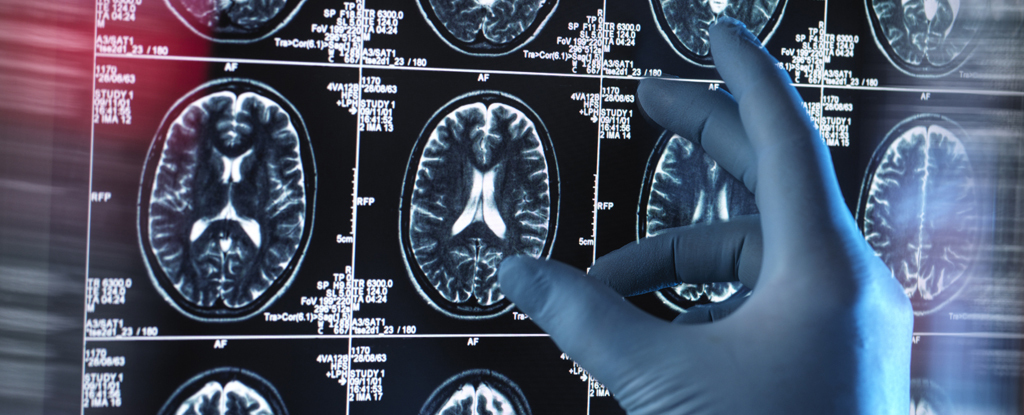Some form of brain injury could be behind the symptoms reported by those with long COVID, according to a new study, and adapting tests and treatments to match could aid progress in tackling the condition.
Analyzing 203 patients hospitalized with COVID-19 or its associated symptoms, and comparing the results with 60 people without the infection, researchers noticed elevated levels of four brain injury biomarkers – key signs of biological change – in those infected with COVID-19.
What’s more, two of those signs of brain injury persisted into the recovery phase, suggesting that they continue even after the COVID-19 infection has gone. Levels of these two biomarkers were even higher for people who also experienced neurological complications with COVID-19.
Unfortunately, there will be a lot of people finding out how variable healthcare can be in these hidden diseases/disorders
You mean when they’re told it’s all in their head and nothings wrong with them and to stop wasting their time?
Sigh.
In 2020 during COVID, it often presented strangely with patients on 100% oxygen, no respiratory distress, but still having low O2 sats. They’d sit there for a week and a half with sats in the 70s and were only intubated once they decompensated from there. That 10 or so days of low sats hits every organ in the body but the consensus was to intubate once they were in distress. For those that survived, long covid makes a lot of sense
I got long covid after what was the equivalent of a bad cold. My o2 never dropped below 95%, and my temp never got above 101F.
I’m definitely not the only one, so oxygen deprivation isn’t the only source of damage.
Yes, because of course that explains the lung capacity issues. /s
I hate when issues are oversimplified beyond anything meaningful like this on the back of some newly published article.
I get what you’re saying. Without more context that this finding is one piece of a bigger puzzle, you can look forward to your Aunt Crazytown confidently informing you at next Thanksgiving dinner that you can’t breath well because you have a brain injury. It’s 50% a lack of journalistic probing, and 50% all the lead paint the Boomers ate growing up.
That’s exactly it, long COVID is multiple problems in many damaged tissues. We’ve found a new damaged location, it doesn’t diminish the impact of everywhere else though like this article headline claims.
But that’s not how research works… research papers will often assess one very specific area… there’s no point in talking about all of the other ailments that are possible with Covid, because the research paper was exploring brain injury biomarkers ?
Eh, he’s not commenting on the research though. He’s commenting on the article. The headline says “Long COVID seems to be brain injury…”, but we know that can’t be the whole story. If the journalist were doing a better job, it should have said “Long COVID likely involves a brain injury…”. They might have even asked the researchers how the brain injury theory could account for diminished lung capacity - but they didn’t.
Right, viruses and the local immune response can damage healthy tissue.
Isn’t this just the result of COVID? In other words, can we stop calling it long COVID and just explain to people how their immune system works, and that it’s just the result of having contracted a very serious virus?
Can’t these symptoms happen identically with just about any virus?
I think COVID is special in that it can infect cells in all organs of the body. I believe other viruses can cause long-term or permanent damage but they tend to be more limited in the scope of what organs they can affect. Plus, any viruses that don’t affect the respiratory, digestive, or reproductive systems are a lot harder to transmit, so there’s fewer cases overall.
Also, respiratory viruses are a bit special in how much of an initial dose one can be exposed to (unless you’re eating the ass of someone who is shedding a digestive system virus or receive a blood transfusion laden with some bloodborne virus, you’re not likely to get a similar exposure to sitting in a room with an infected person shedding virus particles with each breath).
But this is just my own speculation based on what I’ve seen and read. It’s interesting seeing more and more studies coming out.
The lead is in the air and the water too, it’s poisoning everyone.
What makes you say this is oversimplified? Seems like a fairly decent laymans article from research?
Attributing long COVID to a brain injury is just wrong. Long COVID is the result of multiple damaged organs, including lungs, peripheral and central nervous systems, the heart, etc.
What’s worse, this is entirely correlative. Bio markers are correlative indicators of disease, and while sometimes there is a causal relationship that is something that must be tested and proven before you can make the claim that it’s the source of the issue.
If long COVID correlates with brain injuries and certain elevated bio markers, it could very well be an artifact of reaching a high viral burden during peak infection. The immune system couldn’t prevent damage to the brain during a period of time, for example. It makes sense that if the immune system couldn’t prevent damage during this time, that the lungs were getting ravaged because the immune system couldn’t mount an effective defense in the tissue.
There are so many possibilities that are glossed over by a simplified headline like this and worse, it will stick in people’s minds that have no idea how complex the situation really is.
I don’t believe anywhere in the article they were trying to explain the pathophysiology (aside from ? auto immune).
I don’t think the article is saying the “only” symptom of long Covid is a brain injury.Long COVID Seems to Be a Brain Injury, Scientists Discover
Bad title maybe
Yeah, that is fair





